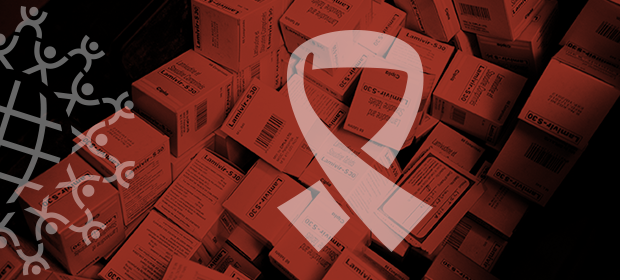Where We Work
See our interactive map


Health workers who understand those at greatest risk of contracting HIV are more likely to reach them.
How we are treated by health workers can determine our future health decisions and behaviors.
Just think about the journey for those who live with HIV—from learning what HIV is and how it’s transmitted, to getting an HIV test, to, depending on the result, adopting lifelong changes in your everyday behaviors as part of your care and treatment.
At every point in this journey, the information a client receives—and how and from whom—will influence whether they decide to seek health care and remain on treatment.
We should never underestimate the power of a health worker who makes a client feel at ease, provides up-to-date information, ensures confidentiality, listens without judgment, confidently performs procedures, and carefully explains the benefits of taking medication correctly, returning for follow-up visits, and completing referrals.
Never underestimate the power of a health worker who makes a client feel at ease.
LINKAGES, a global project funded by the US Agency for International Development, is striving for this level of health care for groups of people who are most at risk of contracting HIV, such as sex workers, men who have sex with men, transgender people, and people who inject drugs.
To achieve this, project partner IntraHealth International has developed a training guide for health workers called Health4All: A Health Workers’ Training Guide for the Provision of Quality, Stigma-Free HIV Services for Key Populations.
Health4All is a compilation of some of the best, most up-to-date information and participatory exercises available. It also closely aligned with the WHO Guidelines on HIV Prevention, Diagnosis, Treatment and Care for Key Populations. The training guide is made up of four modules:
It covers a four-day training for those who train other health workers and a three-day training for health workers; however, the material can be adapted for longer or shorter trainings. There are also opportunities for clients who are members of these key populations to join the trainings and interact with and learn alongside health workers.
Through a group of multilingual training experts and key population members, IntraHealth has translated and adapted the material and trained 291 trainers in Angola, Burundi, Cote d’Ivoire, Haiti, Honduras, Mozambique, and South Sudan, with more trainings to follow soon in Indonesia, Mali, and the Eastern Caribbean. For most participants, this training is their first opportunity to learn about key populations, understand the barriers to accessing services, and to reflect on their own feelings and attitudes about providing services to key populations.
I recently asked the group of master trainers for their observations during the trainings. What surprised most of them was health workers’ lack of awareness about gender and sexuality, and their limited knowledge of the unique health needs of key populations and of the urgency for key populations to access HIV services to curb the epidemic.
In one of the trainings, oral sex was discussed. Not only was this topic considered taboo, but one of the participants thought that oral sex is sex over the telephone.
Health workers have to understand people’s different sexual practices and lifestyles and develop the vocabulary and confidence to talk about them with all of their clients. Otherwise, clients will never feel comfortable discussing their high-risk behaviors and opportunities are lost to provide procedures such as anal exams for men and women, treatment for sexually transmitted infections, referrals for family planning, and pre-exposure prophylaxis.
The importance of bringing these two groups together cannot be overemphasized.
Health4All offers a safe forum where health workers and key populations meet and talk about sexuality and key populations’ health needs—a dialogue that is appreciated by both groups. The importance of bringing these two groups together cannot be overemphasized. It is critical to empowering key populations, breaking down stereotypes, and reducing stigma.
However, it requires an experienced trainer to facilitate discussions (which can become very heated) and to move the group from debate to plans for action. One participant in a training of trainers in Mozambique demonstrates this:
“You know, I came here because I had to...but you must understand that this thing of men who have sex with men is really strange and it is not well accepted in our culture...and you know...we didn't have this ‘problem’ here before.”
On the last day, this same participant said, “I would like to thank you for this wonderful training...I surely learned a lot about rights and HIV and how we can improve our health system, but what I’m really thankful for is that I learned to be a better human being and to respect our differences. This will change me for life.”
Despite difficulties and some uncomfortable moments during the training, all the trainers commented on the passion, determination, and optimism that participants have toward their work and their desire to improve the quality of HIV services for everyone, particularly key populations.
LINKAGES is funded by the US Agency for International Development. FHI 360 leads the project in partnership with IntraHealth International, PACT, and the University of North Carolina at Chapel Hill.
A version of this post originally appeared in the Linkages newsletter.
Get the latest updates from the blog and eNews




